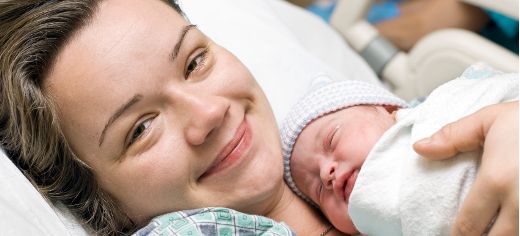
Cooling newborns suffering from a lack of oxygen at birth significantly increases their chance of survival without brain damage to 6-7 years, according to research involving the University of Leeds.
The study, published in the New England Journal of Medicine, and funded by the Medical Research Council, found that 51.7% of infants treated with hypothermia survived with an IQ of 85 or above, compared to 39.4% of those treated with standard care.
Cooling significantly reduced the chance of oxygen-deprived children suffering from cerebral palsy and other moderate/severe disabilities. They also showed improved motor functioning. However, the authors observed that there was no difference in mortality rate – reported to be around 30% of children enrolled in the trial – between the standard care and hypothermia-treated groups.
Malcolm Levene, Emeritus Professor of Paediatrics in the School of Medicine at the University of Leeds, said: “This research is a culmination of more than 20 years of planning and collaboration and represents a major advance in the prevention of brain damage from this tragic condition, which previously was resistant to all forms of treatment.
“Children who would have been irreversibly brain damaged are now surviving undamaged as a result of this treatment.”
The trial, led jointly by the National Perinatal Epidemiology Unit (NPEU) at the University of Oxford and Imperial College London, is the largest study of its kind and the first study to show improved brain function in children in later life, who were treated using this method.
Before this trial, there was limited information on the beneficial effect of cooling after asphyxia beyond the age of 18 months. This work is important because it demonstrates that the improvements observed in brain function are not just temporary.
The MRC TOBY trial (TOBY: Total Body Hypothermia) involved newborn babies of at least 36 weeks gestation that suffered from a lack of oxygen at birth. The children were randomly assigned into two groups within six hours of delivery, and either treated with standard care or standard care plus hypothermia – body temperature reduced to 33.5˚C for 72 hours. After that time, they were slowly returned to a normal body temperature of 37˚C.
The current research is part of the follow-up TOBY Children Study that aimed to find out if there were any differences in the health of the children, treated with or without cooling, in later life. The scientists tested the children’s mental abilities and performance at school, looked at parent and teacher reports on behaviour and investigated the presence and severity of any disabilities that resulted from oxygen deprivation.
Following oxygen deprivation a number of processes are set off in the brain, which lead to brain cell death and permanent neurological damage. Hypothermia interrupts these processes to reduce brain injury and has consistently been shown to improve outcomes at 18 months.
This study now confirms treatment with cooling is safe and effective, and that the benefits persist in the long term. The treatment has been endorsed by the National Institute for Health and Care Excellence (NICE) and adopted into clinical practice in the NHS; it has the advantage of being relatively simple and inexpensive to carry out. These new findings support its general use in neonatal clinical practice.
Professor Denis Azzopardi, of King’s College London and lead author of the study said: “This study is important as it confirms improved neurological outcomes persisting into middle childhood with treatment with cooling and it is a proof of the concept that treatment following oxygen deprivation at birth can be effective.”
Hugh Perry, chair of the MRC Neurosciences and Mental Health Board, said: “This study is a great example of how research can change people’s lives. Although major advances have been made in how childbirth is managed, approximately 2 out of every 1000 newborn infants suffer from a lack of oxygen around the time of birth. Prior to the introduction of cooling therapy there were no approved, specific treatments that reduced the risk of death or brain injury following asphyxia.”
Further information
Emeritus Professor Malcolm Levene is available for interview. Contact Ben Jones in the Press Office on +44 (0)113 343 8059 or email B.P.Jones@leeds.ac.uk